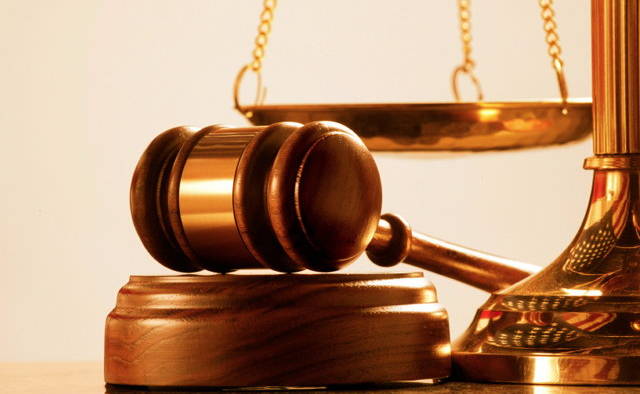High Court judge Justice Esco Henry has reserved until 1:30 p.m. Tuesday her decision on whether she should hear a motion by the respondents to dismiss the two election petitions filed by the main opposition New Democratic Party.
During Tuesday’s hearing, lead counsel for the petitioner, Queen’s Counsel lawyer, Stanley “Stalky” John, asked the court to give directions on a hearing.
But lead counsel for the respondents, Senior Counsel Anthony Astaphan, objected, saying this is “a very, very difficult issue”, adding that the question of direction raises serious issues about the jurisdiction of the court.
He said that Justice Brian Cottle, the first judge to hear the matter, consistently refused to give direction on the petitions in light of the motion by the respondents that the petitions should be thrown for having inadequate security.
While noting that he could not say how the court might rule, Astaphan asked what would be the purpose of giving direction if the petitions could potentially be struck out.
Astaphan said that giving directions would only incur cost if, at the end of the day, the petitions are struck out.
He said the respondents should be given a chance to present their arguments on why the petition should be thrown out and if those fail, the judge can give direction.
The petitioners were reverted to the High Court after the Court of Appeal ruled on March 7 that Cottle showed apparent bias in his decision to throw out the petitions last June.
In explaining the proceedings, John told reporters outside the court that Justice Henry wanted, in the first place, to get a clear perspective as to how the each side thinks she should go forward.
The petitioners have suggested that in the interest of an expeditious, economic and fair trail of the proceedings that the judge considers all of the documents filed so far on behalf of the various parties.
He said the petitioners have further argued that through this, the judge should determine whether she will hear the motion to strike, in light of the fact that they are preliminary issues affecting the validity, potentially, of the petition.
In response to the motion to strike, the petitioners are contending that the motions themselves are an abuse of the process of the court and, therefore, the court should strike them out.
They are suggesting that the court has no jurisdiction to hear the motions to strike and that that issue should he heard first.
John told reporters: “Because if the court agrees with us that the motions to strike are an abuse of the process of the court, then the motions to strike would not be validly before the court and the court can go on straight o hear the petitions.”
He said the petitioners anticipate that the court may well hear the motions to strike when the proceedings resume Tuesday afternoon and that the judge would invite the petitioners to make preliminary submission as to whether that motion to strike are an abuse of the process of the court.
“And our anticipation, further, is that she will reserve her judgment and when we come back on Thursday, we will be in a position to know whether she agrees with counsel for the petitioners that the motions that are filed on behalf of the respondents are an abuse of the process, and, therefore, whether or not she will proceed with the petitions or whether she would proceed from Thursday with emotion to strike,” John said.
The NDP is challenging the results in Central Leeward and North Windward of the December 205 general elections.
Its candidates, Ben Exeter and Lauron Baptiste, are asking the court to overturn the results there and declare them winners in those districts or order fresh elections there.
Electoral officials say that the ruling Unity Labour Party, led by Ralph Gonsalves, won a fourth consecutive term in office by winning eight of the 15 parliamentary seats, while the remaining seven went to the NDP.
Regional and hemispheric observer have said the results of the election reflect the will of the people.
However, the NDP, citing irregularities, have rejected those results.






